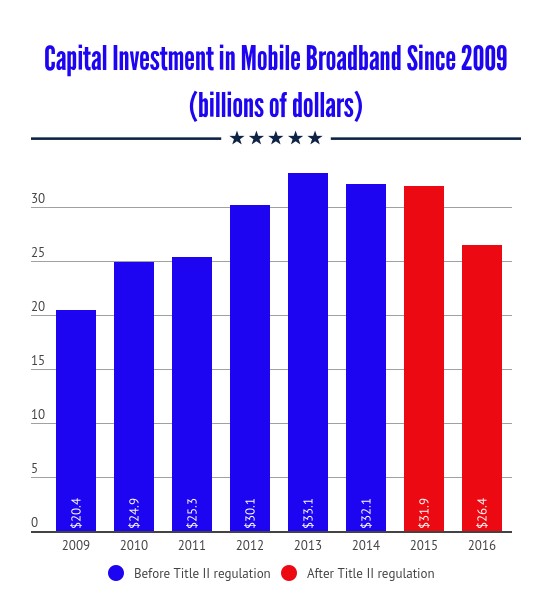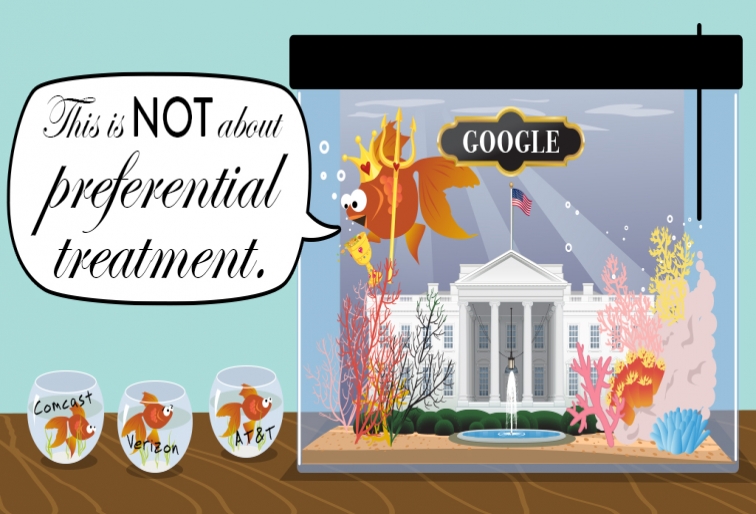An unfortunate byproduct of life in a democratic system is that complex policy matters are often reduced to simplistic slogans, and politicians exploit attractive terms to peddle harmful proposals.
California offers a textbook example, where legislators are pushing something called the “California Broadband Internet Privacy Act” (A.B. 375) in the name of “protecting consumer privacy.”
The reality is far different. In truth, the bill constitutes crony capitalism on behalf of some industries at the expense of others, and would stifle innovation and undermine rather than boost consumer welfare.
This battle was already fought and won at the federal level, when Congress employed the Congressional Review Act to rescind an Obama Federal Communications Commission (FCC) rule to the same effect.
Supporters of the proposed legislation will tell you that it’s necessary to protect consumers against internet service providers who seek to gather and sell private information. In that vein, the bill would require that consumers “opt in” before service providers could use their data to improve service or tailor advertising to consumer preferences or needs. Current law, however, already allows consumers to “opt out” from collection of non-sensitive data if they choose. Notably, few consumers choose to do so, because that would interfere with their ability to enjoy more customized online service that they prefer.
It’s also important to note that current law also already requires that consumers “opt in” to allow access to particularly sensitive personal information.
So what the proposed law would do is impose a one-size-fits-all mandate that most customers currently don’t choose.
Secondly, the Federal Trade Commission (FTC) already possesses authority to protect consumers against privacy violations and punish improper data collection should it occur. That’s how the system has worked for over two decades while the internet flourished like no innovation in human history. And that’s why the FTC expressed opposition to this sort of “privacy” legislation at the federal level before it was quashed. California’s attorney general is also empowered to investigate and seek legal remedy for “unlawful, unfair or fraudulent business acts or practices” under California’s Unfair Competition Law.
Even former Democratic California Congressman Henry Waxman observed that this type of law would “undermine beneficial uses of data” and “could result in tangible competitive and consumer harm.”
Another flaw in the bill is that it conspicuously exempts powerful content companies like Google, which obviously earn their billions by monetizing consumer data for purposes of advertising and sales. Those content companies access customer personal information just as much as service providers, if not more. After all, consumers tend to access the internet via different devices and networks, whereas they tend to use the same search engines (i.e., Google) and visit the same content sites.
Accordingly, the proposed bill amounts to crony capitalism benefitting one set of companies at the expense of another set.
California’s proposed law would create the additional problem of imposing burdens that other states don’t impose, thereby creating a “spaghetti bowl” regulatory effect for companies that offer nationwide products and services.
Online privacy remains a natural and important concern for consumers in California and across America. But we must also beware politicians pushing laws that undermine consumer welfare, threaten the thriving internet sector and amount to crony capitalism by picking winners and losers in the marketplace.




 CFIF Freedom Line Blog RSS Feed
CFIF Freedom Line Blog RSS Feed CFIF on Twitter
CFIF on Twitter CFIF on YouTube
CFIF on YouTube